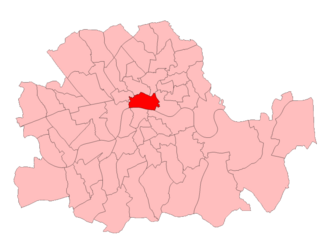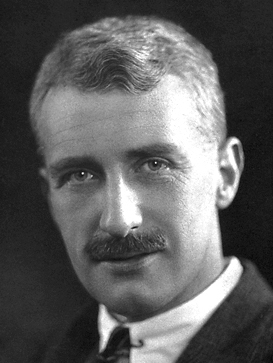The 1948 Croydon North by-election was a parliamentary by-election held in the British House of Commons constituency of Croydon North on 11 March 1948. The seat had become vacant when the Conservative Member of Parliament Henry Willink had resigned, having held the seat since a by-election in 1940.
The 1943 Darwen by-election was a by-election held on 15 December 1943 for the British House of Commons constituency of Darwen in Lancashire.

The 1943 Chippenham by-election was a parliamentary by-election held in England on 24 August 1943 for the British House of Commons constituency of Chippenham in Wiltshire.
The 1945 Newport by-election was a parliamentary by-election held on 17 May 1945 for the British House of Commons constituency of Newport in Monmouthshire. It was the last by-election of the 1935–1945 Parliament.
The 1940 Nottingham Central by-election was a parliamentary by-election held for the British House of Commons constituency of Nottingham Central on 19 July 1940. The seat had become vacant when the Conservative Member of Parliament (MP) Sir Terence O'Connor had died on 7 May 1940. O'Connor had held the seat since a by-election in 1930.
The 1928 Cheltenham by-election was a parliamentary by-election held on 26 September 1928 for the British House of Commons constituency of Cheltenham in Gloucestershire.
The 1940 Kettering by-election was a parliamentary by-election held on 6 March 1940 for the British House of Commons constituency of Kettering in Northamptonshire.
The 1930 Nottingham Central by-election was a parliamentary by-election held on 27 May 1930 for the British House of Commons constituency of Nottingham Central.

The 1942 Maldon by-election was a parliamentary by-election held on 25 June 1942 for the British House of Commons constituency of Maldon in Essex. It was one a series of by-elections in World War II won by radical independent candidates.
The 1940 Newcastle upon Tyne North by-election was a parliamentary by-election held on 7 June 1940 for the British House of Commons constituency of Newcastle upon Tyne North.
The 1937 Holland with Boston by-election was a parliamentary by-election held on 24 June 1937 for the British House of Commons constituency of Holland with Boston.
The 1940 Middlesbrough West by-election was a parliamentary by-election held on 7 August 1940 for the British House of Commons constituency of Middlesbrough West.
The 1940 Battersea North by-election was a parliamentary by-election held on 17 April 1940 for the British House of Commons constituency of Battersea North in the Metropolitan Borough of Battersea.
The 1938 City of London by-election was a by-election held on 6 April 1938 for the British House of Commons constituency of City of London, which covered the "Square Mile" which was the United Kingdom's traditional financial district.

The 1922 City of London by-election was a parliamentary by-election held on 19 May 1922 for the British House of Commons constituency of City of London, which covered the "Square Mile" which was the United Kingdom's traditional financial district.
The 1924 City of London by-election was a parliamentary by-election held on 1 February 1924 for the British House of Commons constituency of City of London, which covered the "Square Mile" which was the United Kingdom's traditional financial district.
The 1937 North Dorset by-election was a parliamentary by-election for the British House of Commons constituency of North Dorset on 13 July 1937.
The 1939 Brecon and Radnorshire by-election, was a parliamentary by-election held on 1 August 1939 for the British House of Commons constituency of Brecon and Radnorshire, in South Wales.

The 1940 Cambridge University by-election was a parliamentary by-election for the British House of Commons constituency of Cambridge University on 23 February 1940. Cambridge University was a two-member constituency.
The 1937 Combined English Universities by-election was a parliamentary by-election for the British House of Commons dual member constituency of the Combined English Universities held on 22 March 1937.



